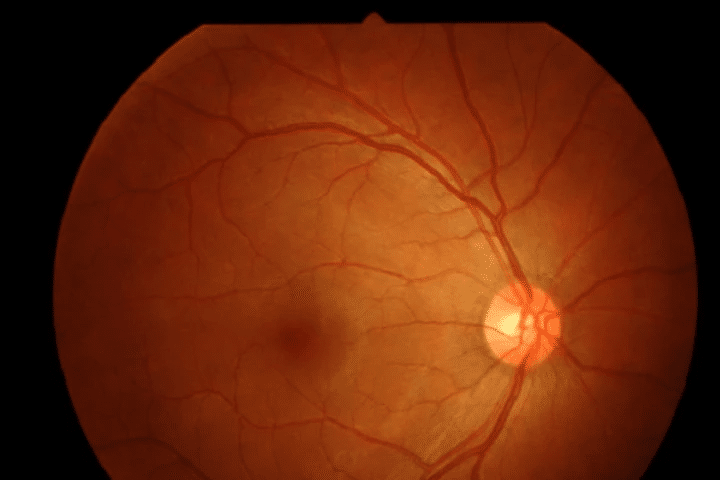What can opticians tell from your eyes?
Many people feel their opticians can only inform them of their vision. This is a big misconception of the importance optometrist can play to people’s eye and body health. Naturally, people feel they can tell if their vision has changed so going to the opticians to have their eyes examined seems like a waste of time and money.

The reality is that people often don’t realise if their eyes are going through changes and missing eye appointments could have more damaging effects than they realise. Eye tests can diagnose many minor conditions to much more serious conditions, in some cases these conditions can be life threating. This list has a brief overview of what many of the conditions are and how they can be detected by an optician.
Minor conditions eye tests can find
Long/Far Sighted or Short/Near Sighted – Quite an obvious condition your optician can find through an Autorefraction. Other machines can also be used and some more aimed at children who cannot measure their vision. Other tests often follow like looking through a variety of lenses.
Astigmatism – This condition can cause problems to people’s vision like blurriness and is a result of your cornea changing shape. This leads to the light not entering your eye the way it should. Opticians detect this through machines that shine a light into your eye and monitor the reflection off the back of your eye.
Presbyopia – This is a condition that usually affects people with age as their lens becomes less flexible, resulting in them not being able to see things close as easily. There are five types of Presbyopia and opticians usually detect the condition via a standard eye test.
Floaters – Floaters are clumps of cells that have within the eye, this is often caused by gel coming off the back wall of the eye. You would often see this yourself but optometrists can determine the reason and the seriousness of this. If you have recently started seeing floaters you should see you book an appointment with your local practice.
Dry eye – This is often very minor and caused by your eyes tear production being too little or too much. Your local opticians can diagnose this through a Fluorescein dye test. In more extreme cases this can lead to inflammation of the Cornea making it venerable and putting your sight at risk. If you get Dry Eye Syndrome and it persists, contact your local practice regarding advice and treatment.
Conjunctivitis – Is very common and very contagious. Conjunctivitis is the result of that Conjunctiva swelling or becoming inflamed. This is also known as pink eye as a result of the white part of your eye turning red. Your local optician will be able to diagnose this from asking you about the symptoms and advise you on the correct medication to overcome this infection.
Serious conditions eye tests can find
Diabetes – This is a condition where the levels of sugar in the blood are too high because the body does not know how to deal with them properly. Diabetes affects a part of the Retina. A blood vessel will leak blood or a yellow substance. If your optician finds this condition they will inform you accordingly.
Dementia – Is when the brain is damaged by a disease or injury. This can affect people’s memory, organisation and the ability to judge distances. Some cases of Dementia can cause visual difficulties and a thorough eye examination from an optometrist can often identify this.
High Blood Pressure (aka Hypertension) – This can be a result of many things such as food habits, lack of physical activity or genetics etc. High blood pressure is when your body needs to work harder than normal to pump the blood around your body. In some cases of Hypertension, blood vessels may have bends or tears which could be a sign of high blood pressure. If your optician had any suspicion of this they would advise you on what to do next.
High Cholesterol – Cholesterol is a fatty substance within the blood, too much of this can cause you serious issues such as heart disease. Your local optician could be able to tell if you had high cholesterol via your corneas, as they may have a yellow ring around them.
Arthritis – This is when there is inflammation within a joint, there are many symptoms and types of arthritis. Some forms of arthritis can cause your eyes to dry or cause inflammation in parts of the eye. Your optician would inform you of this and the necessary steps you should take if they had concerns.
Cataracts – This is when the lens of the eye becomes cloudy. This can affect your vision in many ways such as how you see light and colours. There are many reasons you could get this condition such as the medication you are on, genetics or lifestyle. Cataracts is very curable, with surgeons able to remove and replace your Lens. Opticians can find this condition through doing a thorough eye examination and using a slit lamp stereoscope. They will examine the eye to see if there is any yellowing of the Cataracts. Surgery is not always the primary reaction to this condition but it will be considered with more serious cases.
Glaucoma – With very few symptoms an eye test is the only way to determine if you have Glaucoma. Glaucoma is optic nerve damage, caused by pressure within the eye. Your opticians will use a tonometer to determine if you have the condition. This device blows air onto the surface of your eye and measures the pressure within the eye. Glaucoma can lead to blindness within a few years if not found by an optician so regular eye tests are crucial!
Macular degeneration – This is often age-related and affects the centre part of the eye. People will see a blurred or black blob in the centre of their sight. There are currently no cures for this condition but its effects can be prolonged with the correct treatment. Your vision may not be affected in the early stages of this condition but a thorough eye test and examination of the Retina is the only solution to finding this condition. Many people get small deposits under their Retina with age but if these are bigger than normal you optician may find you have early stages of Macular Degeneration.
This list could also continue with tumours and thyroid problems etc. As you can see, an appointment with you opticians is not just an assessment of your vision. If you have any suspicions that you have some of these issues a GP would be your first port of call. Never the less the importance an optician can play to you finding a life-threatening issue should not be overlooked. Some eye conditions can result in long-lasting effects such as blindness within a very short time span, why risk not visiting an optometrist? You should have an eye test every 2 years or less if requested by your optician. Book an appointment with your local practice today using the find your local optician tool.
Related articles





